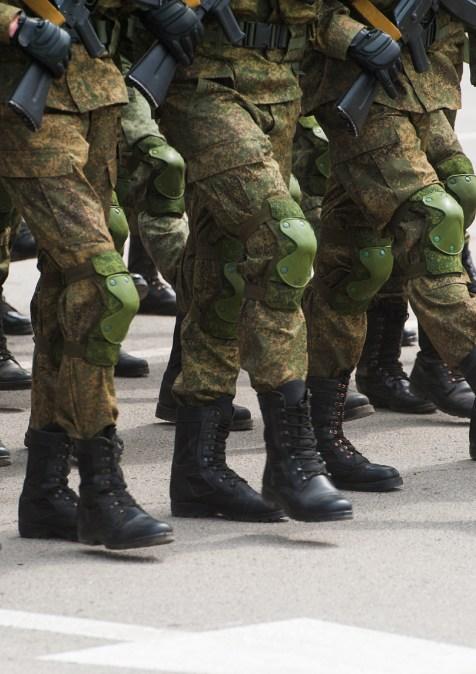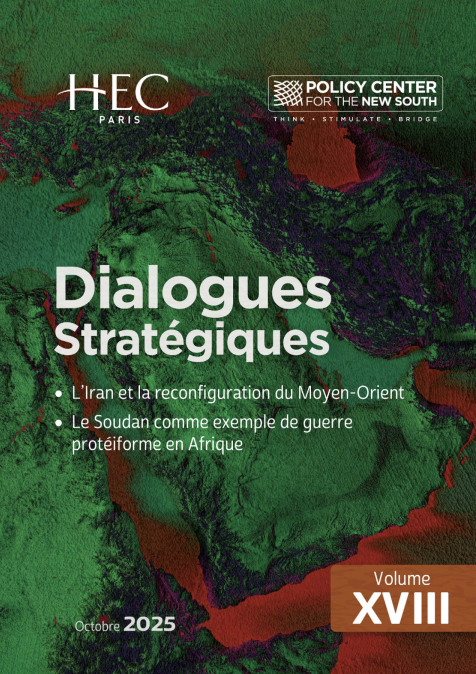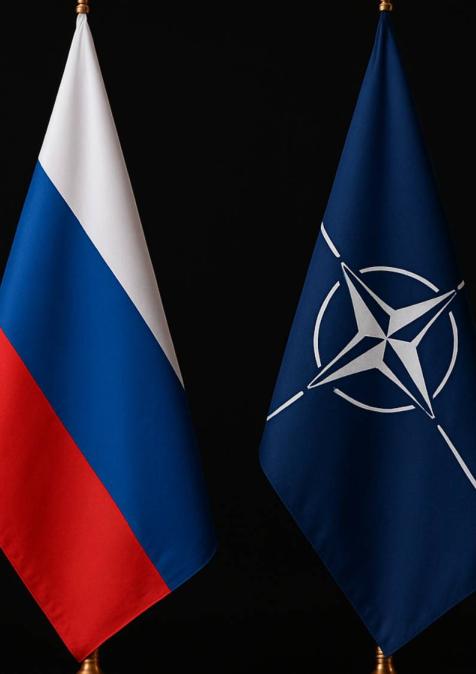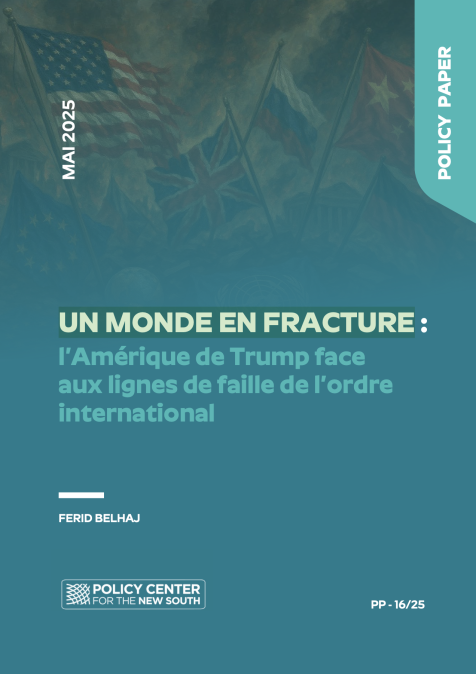Publications /
Opinion
To read Part II of the blog, click here
“We Have No Eternal Allies”
Philip Alston was confronted with a special assignment. To write a report for the United Nations on poverty in the world’s fifth economic power in the world, a nation considered as a beacon of democracy, a Kingdom represented by a queen, not only adored by readers of glossy gossip magazines, but also by progressives and left wing intellectuals, even those who believe royalty is a waste of money, and their wealth a stark contrast to the unjust misery of its citizens. Elizabeth II is just part of our contemporary history and daily lives, a living painting, a touch of Monet, the intensity of Turner, 92 years old and still married to her Duke, who happened to reveal his age the other day, when his reflexes were obviously not on par with those of Formula One maestro, David Hamilton. The Royal driver, aged 97, crashed into another car, one woman injured, and the duke with some pain in the leg, reacted rather self-critical, “I am a fool, such as fool.” His Range Rover was replaced… One day later. 122,000 pounds certainly did not bother Philip, whose wife is probably the wealthiest Royal on earth, if we exclude the oil supplied Sultan of Brunei and the King of Saudi Arabia.
Philip Alston, officially “Special Rapporteur on Extreme Poverty and Human Rights” had no reason, nor possibility, to mention this unfortunate accident at the Queen’s country estate, the Sandringham House, since it happened weeks after his study was published. In his introduction, though, he wrote of the UK’s “many areas of immense wealth” and how “despite the current political turmoil,” its system of government, “rightly remains the envy of much of the world” (Alston, OHCHR, 2018).
“It thus seems patently unjust and contrary to British values,” argues the UN rapporteur, “that so many people are living in poverty. This is obvious to anyone who opens their eyes to see the immense growth in food banks and the queues waiting outside them, the people sleeping rough in the streets, the growth of homelessness, the sense of deep despair that leads even the government to appoint a Minister for suicide prevention and civil society to report in depth on unheard levels of loneliness and isolation” (Alston, OHCHR, 2018).
Alston adds that: “14 million people, a fifth of the population, live in poverty. Four million of these are 50 percent below the poverty line, and 1.5 million are destitute, unable to afford basic essentials” (Alston, OHCHR, 2018).
“Not Just a Disgrace but a Social Calamity”
The “widely respected” Institute for Fiscal Studies, consulted by the Professor, who usually analyzes poverty in Africa, South America or Asia, predicts a 7-percent rise in child poverty between 2015 and 2022, and various sources fear child poverty rates as high as 40 percent (Alston, OHCHR, 2018). As Alston explains, “for almost one in every two children to be poor in twenty first century Britain is not just a disgrace but a social calamity and an economic disaster, all rolled in one.”
Alston continues: “The country’s most respected charitable groups, its leading think tanks, its parliamentary committees, independent authorities like the National Audit Office, and many others, have all drawn attention to the dramatic decline in the fortunes of the least well off in this country. But through it all, one actor has stubbornly resisted seeing the situation for what it is. The Government has remained determinedly in a state of denial.”
When Theresa May moved into Downing Street in July 2016, she mentioned, in her first speech as Prime Minister, the millions of citizens “just managing” and called it a “burning injustice” that people born poor will die, on average, nine years earlier than the better off.. The conservative politician vowed her government would not “entrench the advantages of the privileged few.” Promise. The words of an irresponsible leader--the poor are still poor, worse, they are sliding even deeper into misery. Money needed was spent on Brexit, hundreds of millions for a mammoth task, implementing the wishes of the people for all the people, the government apparatus mainly paralyzed while working on the retreat from Europe. When parliament called for a debate on the Alston report, it was scheduled at 10 o clock in the evening, on a Monday, early January, [lasting only] 30 minutes. 14 of 650 members of parliament showed up, the concerned minister, Amber Rudd, Secretary of State for Work and Pensions, was represented by a deputy. She knew of the harsh judgment and certainly neither willing nor prepared to defend the disaster.
In England, homelessness is up 60 percent since 2010; rough sleeping is up 134 percent, researched Philip Alston. In fact, there are 1.2 million people on the social housing waiting list, but less than 6000 homes were built in 2017. Alston realized, during his travels, that “British compassion for those who are suffering has been replaced by a punitive, mean spirited, and often callous approach apparently designed to instill discipline where it is least useful, to impose rigid order on the lives of those least capable of coping with today’s world, and elevating the goal of enforcing blind compliance over a genuine concern to improve the well-being of those at the lowest level of British society” (Alston, OHCHR, 2018).
“Deep Uncertainty Will Persist for a Long Time”
The rapporteur was aware that the publication of his study in November of last year--as seen in the short intense debate in the House of Commons--came at a critical moment on the debate over Brexit and he did not want to get involved in the debate on its merits or the optimal terms for undertaking it. “Anyone concerned with poverty in the UK,” he stated, has “reason to be very deeply concerned.” Whatever happens in the period ahead, we know that “deep uncertainty will persist for a long time, that economic growth rates are likely to take a strong hit, and that tax revenues will fall significantly. If current policies towards low-income working people and others living in poverty are maintained in the face of these developments, the poor will be substantially less well off than they already are.” The consequence ? For Philip Alston, “this could well lead to significant public discontent, further division and even instability, thus underscoring the importance that steps be taken now to avoid such outcomes” (Alston, OHCHR, 2018).
The International Monetary Fund (IMF) has suggested that a no deal Brexit could cost the UK economy somewhat between 5% and 8% of GDP, representing a loss of thousands of pounds per household. Almost all studies have shown that the British economy will be worse off, with consequences for inflation, real wages and consumer prices. If the government does not adequately uprate benefits to account for inflation after Brexit, warned the Joseph Rowntree Foundation, up to 900 000 more people could fall into poverty. For Alston, “the UK stands to lose billions of pounds in EU funds that will disproportionately affect the poorer areas that have most benefitted from them, including almost nine billion in poverty reduction funding between 2014 and 2020.” Alston, hesitant to criticize too harshly, still declared publicly, that the “only clear decision” Britain has made on Brexit since the 2016 referendum, was to give formal notice to quit under article 50 of the European Union’s Lisbon treaty, a legal process setting it on a two year path to departure-- in a few weeks the official deadline will be reached.
As the threshold nears, Mrs. May and her government are trying, desperately, to overcome parliamentary arithmetic—in historical measurements one minute before midnight, seconds before reaching a social and economic earthquake, the conservative leader was, at last, willing to consult the Labour leader, whom she never involved in her historical discussions with the continental Europeans. Never in modern history has such a project been attempted, such risks been taken because a nation, or parts of it, was tempted to return to greatness and global power, alone. David vs. a global goliath.
150 Billion For a No Deal Brexit
The fantasy Brexit would be easy (Alston) is crumbling, and lawmakers who “made lofty promises” to their constituents are having to face reality. Theresa May still has options, but not any she can implement—the acceptance of her original deal (with some help from Brussels), which the parliamentarians dumped into a waste basket of history, despite the Prime minister conviction, “this is the best possible deal, it is the only possible deal.”
Britain, it seems, is unwilling or unable to recall a virtue of long forgotten, glorious, days, and the art of compromise. The political class is not only gambling away the trust of its citizens, but what emerges out of this logjam, wrote Benjamin Mueller in the New York Times, “could determine the shape of Britain and its place in the world for decades.” The swashbuckling, populist plan to quit the EU has stalled and almost every option is now on the table, “from a daringly complete break from Europe to abandoning Brexit altogether” (New York Times, 2019). Without any compromise, all ties between Europe’s Union and Britain are immediately severed on March 29, and London can pursue its trade with the EU and other countries on the basis of World Trade Organization (WTO) rules. A no deal exit, the Chancellor of the Exchequer, Philip Hammond, has calculated, could cost the country up to 150 billion pounds over the next 15 years.
“A Catastrophic Defeat”
Absurd, for these 650 members of Parliament to believe the European Union would be ready to extend the March 29th Brexit deadline after having endured eighteen months of negotiations between Brussels and London, a political marathon, stretching from June 2017 to November 2018. On January 15th 2019, the Prime Minister was corrected, no, punished, yes, humiliated. Mrs. May suffered the worse vote of any PM before her in the modern era of British democracy, 432 MPs voted against her Brexit deal, while 202 votes were in favor. Labour Party leader Jeremy Corbyn stated: “This is a catastrophic defeat. The house has delivered its verdict on her deal. Delay and denial has reached the end of the line.” Yet, Theresa May did not resign. And during the last days of January, the obviously confused British MPs tried to find a sense in their own absurdity and division, trying to discover an emergency exit, seemingly only discovering, after a long phase of absenteeism (just a few weeks from a potentially fatal date), that Brexit could lead Britain not only into an abyss--sliding into yet unforeseeable economic and political disaster--, but causing historic ramifications as rambunctious as unimaginable. Ramifications consisting of social unrest, bankruptcy, mass unemployment, falling pound, shortage of medicine and the exodus of industry and financial institutions. A dangerous threshold has been reached. History is written.
Welcome to the real world... Made in Britain, supported, in 2016, by 51.9 percent of the voting population. A referendum, conceived as a support for the conservative government of David Cameron, who did not have the feeling for his people, the wrong pollsters, or only his political survival in mind. Theresa May replaced her former boss, and miscalculated as well. In June 2017, she called an election, which she did not need, and almost lost. Ten lawmakers from the Northern Irish Democratic Unionist Party supported her new government, but not her deal with Brussels. A Shakespearian drama, all of this, the loss of the United Kingdom for Europe. A difficult, eccentric partner at times, insisting on the pound, unwilling to join Schengen. Opinion polls do not provide any hope, just figures that prove the possibility that Britain is as divided as ever, an estimated 52 percent of its citizens inclined to remain in the EU. No certainty either. Just the hope for a kind of abracadabra, a magical word with which the UK could throw off its shackles like oppressed slaves from the EU, celebrate freedom, continue to move its goods without duties through the European markets, keeping the pound and moving illegal migrants in rubber dinghy’s back to Calais or Cherbourg. Airbus continues to manufacture the wings for all its planes on British soil, and BMW can employ 8,000 British workers in its UK factories. Abracadabra! Where are you when we need you?
At the end, the reluctant Mrs. May was ready for an impossible, yet historic journey, perhaps for the last time visiting the EU headquarters attempting to avoid a so called “hard” Brexit, which means a disorderly, chaotic, divorce between the UK and the UE. Call it a historic nightmare. The EU declared a visit would be a waste of time—the deal was done and not renegotiable. How can the obviously indivertible, indefatigable, indestructible, indubitable Mrs. May, reach a compromise, possibly on the contentious issue or the Irish/Irish border, between the Republic of Ireland and the British province, Northern Ireland, one member of the EU, the other loyal to London ? Anti-EU politicians considered the emergency backup plan for the Northern Irish border as a trap. To prevent inspections at what was to become the EU’s outer border, London and Brussels had agreed on the so-called “backstop,” which held that if the two sides did not sign a free trade agreement by the end of the Brexit transitional period at the end of 2020, Northern Ireland would remain in the European Customs Union and, in practice within the Common Market. Brexiteers saw this plan as an attempt to divide the United Kingdom permanently.
The Border of Ireland is the Border of Europe
In reality, Brexit means that the borders have to be controlled just as other borders, Greece touching Turkey for example, or Poland and Russia. BUT: the Catholic minority of Northern Ireland wants soft borders with the Republic, and they want to, at least, sense a feeling of unity for which they fought a civil war for more than half a century. Business people on both sides of the border fight against restrictions and demand free trade as during the last forty-five years of British-E.U. membership. Brussels, though, insists that no exception was possible, the border of Ireland is the borders of Europe and Mrs. May agreed and signed the agreement. The time has come…What now? Except ordering a removal van since a political earthquake seems unavoidable. Real estate prices tumbling, an exodus of EU-born citizens back to the continent, almost four million now facing personal instability. 2.2 million of these EU citizens are employed in the UK, just under one million are Polish nationals, with 337,000 Irish; 433,000 Romanians; 160,000 French; and 170,000 Italians.
“Europe Cut Off From the Kingdom”
It was an optimistic gesture, the day in June of 2017, when the Queen spoke in parliament and wore a hat in the blue colors of the E.U., dotted with yellow spots suggesting the stars of unity, but now Elizabeth II, as ever alert at 92, may have to live until her 100th birthday, at least, to see a British recovery, and desperate attempts not to follow the paths of the Greek and Roman Empires. The Commonwealth still exists, an almost powerless symbol of Britain’s greatness, when “the sun never set” on his Majesty’s dominions, as author Christopher North wrote in 1829 in Blackstone’s Magazine. More than 600 colonies and dominions controlled and exploited by the Kingdom, once led by historical figures as William Gladstone, Clement Atlee, Lloyd George, Sir Winston Churchill and Viscount Palmerston, who once projected his nation’s philosophy: “We have no eternal allies, and we have no perpetual enemies. Our interests are eternal and perpetual and those interests it is our duty to follow.” Sounds familiar? If you are old enough you may remember when British newspapers reported heavy fog was stopping flights from Heathrow airport, and the shipping traffic in the English channel was diverted, the papers screamed in headlines : “Europe cut off from the United Kingdom.” Now the fact is dramatically changing—the UK is distancing itself from Europe, into a splendid, or, who knows, miserable isolation.
66 million British citizens, attached to its democracy and its parliamentary system (now floating between political slapstick and a memorial service of tradition) have chosen to defect from the spirit of unity and economic reality. It is their right. It is their right to burn the 585 pages of the withdrawal treaty and reduce the unity of all of Europe to ashes. Now, the reality catches up with fading illusions bordering on phantasm. The people seem, slow and reluctant to realize that their politicians did not tell them the truth about sordid Europe and a simple Brexit, the resurrection of a nation blessed by history. Factories are indeed transferring from the UK to locations in France, banks and other financial institutions are leaving for Frankfurt or Stockholm. In the future theaters, museums and Philharmonic orchestras must manage without subsidies from Brussels. How will those who voted against Europe one day explain to their kids why they just can’t work in Lyon or study at the European University in Florence, how this abscission from Europe was not opposed through civil disobedience ?










